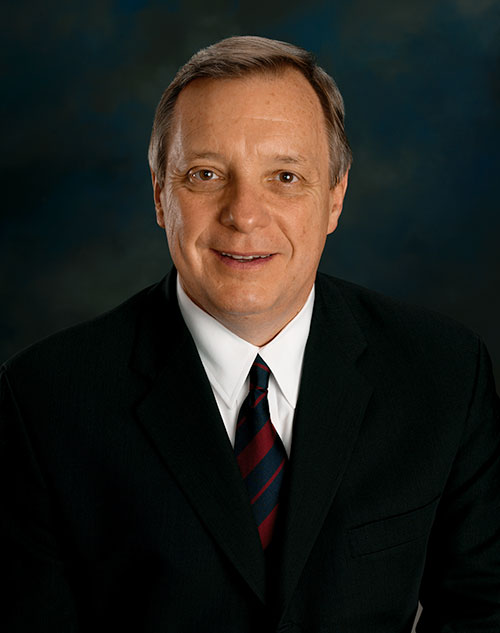The U.S. Senator who gave his name nearly a decade ago to a law that caps debit card interchange made it plain Thursday he now has the rates merchants pay for credit card acceptance squarely in his sights. Commenting during a meeting of the Senate Judiciary Committee, which he heads, Sen. Dick Durbin, D-Ill., accused the major card networks of looking to use higher credit card interchange to compensate for the fee income issuers have lost via the 2011 Durbin Amendment.
“They didn’t forget,” Durbin said, referring to Mastercard Inc. and Visa Inc., both of which have set plans for multiple credit card rate changes next month. “They’re waiting for an opportunity to get even again. Where is the policing authority to stop this duopoly from doing this to every merchant and retailer in America?”
Expressing concern for small merchants impacted by lockdowns and capacity restrictions, Durbin added the widely expected interchange adjustments will come “just in time for your little restaurant that somehow managed to survive and reopen in a pandemic to go into business and have your credit card company say now you’re going to pay us even more.” The cost of swipe fees is “ultimately borne by consumers across America” because they drive up prices, he said.

Adjustments the two card giants are expected to make next month to rates in hundreds of product and service categories will bring in $889 million in net new interchange revenue annually for U.S. issuers, according to estimates from CMSPi, a payments consultancy with a U.S. office in Atlanta. While the firm estimates the April rate changes will generate almost $1.1 billion, it takes into account some $262 million in net reductions Visa put through in July to arrive at its total. The rate changes will vary up or down by merchant category, but in general e-commerce merchants are expected to absorb increases while travel-and-entertainment and low-ticket value, quick-service merchants could see some relief.
Durbin at the Thursday hearing also criticized Visa and Mastercard for setting rates “far in excess of any reasonable measure of cost” and without room for negotiation with merchants. The two card networks are “so dominant in the payments market that merchants couldn’t stay in business without using their cards,” he alleged. Processors and other merchant acquirers pay interchange to card-issuing banks and then pass the cost on as part of their pricing to merchants.
Card-industry spokespeople criticized Durbin’s remarks as ignoring the role interchange income plays in supporting technology to fight fraud and meet other needs. “Interchange rates have held steady over the years and are an essential component of a system that ensures the efficiency, security, and functionality of payments,” says Jeff Tassey, chairman of the Electronic Payments Coalition, a Washington. D.C-based group that lobbies for the networks.
In remarks sent to Digital Transactions News, Tassey stresses the role card payments play in reducing cash costs for merchants. “Senator Durbin continues to ignore the limits and cost associated with cash-based payments and why electronic payments have been a lifeline for countless small business during this pandemic,” Tassey says. Cash costs include counting, storing, safeguarding, and transporting paper money and coins, he adds.
Tassey also contrasts the position of big merchants favoring price controls on interchange with that of small sellers. “Big-box stores like Home Depot, Target, Amazon, and Walmart are among the many giant retailers urging Congress to expand price controls on interchange fees,” he says. “Unlike many small businesses that have been decimated by the current public-health crisis, these companies had profits of more than $60 billion this past year, enabled in part by the fact that they were deemed essential and small businesses had to shut down.”
Durbin’s remarks Thursday follow a letter he and Rep. Peter Welch, D-Vt., sent March 3 to Visa and Mastercard requesting that the networks withdraw interchange increases planned for April.






